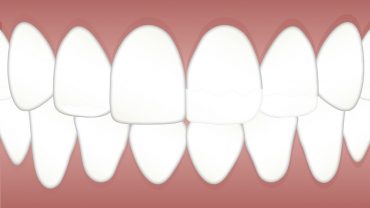How Long Do Dental Implants Last?
Dental implants are a fantastic thing – they are used to replace teeth that have been lost, and can restore your smile, your chewing ability and your confidence.
But if you have them, you might be wondering how long do dental implants last, and whether you will have to replace them. Read on for all the information you need!
How Long Do Dental Implants Last
Dental implants are not a temporary fix – they are intended to last you as long or even longer than your actual teeth!
Generally, we will get these things later in life, and as such they may well last you for the rest of your life, as long as you look after them correctly.
Dental implants are made to imitate your natural teeth as closely as possible, so they can see you through the rest of your days if they are the right ones for you.
This video, made by a dentist, will tell you a little more about the longevity of your dental implants:
Can Dental Implants Last A Lifetime?
Because a lifetime varies from person to person, it is impossible to say whether yours will last for the whole of your life.
However, these nifty little devices are designed to be a replacement for your existing tooth that has come out, and they are designed to be strong!
The implant itself, which is fixed into your gums, should last for several decades, with the right oral hygiene routine.
The tooth that is fixed to the implant may be slightly more susceptible to damage, and therefore may need replacing.
The dental implant itself, however, should stay there quite happily for the rest of your life – as long as you look after it well.
- Floss daily. Try to avoid any particles of food or drink sitting around the gum line, as this can cause gum disease which can weaken the implant.
- Use a soft brush. Making sure you do not use anything abrasive on your dental implants is key to keeping them healthy.
- Try antibacterial mouthwash. This, combined with regular brushing and flossing, can really improve the health of your mouth overall.
- Avoid smoking and alcohol. Both of these habits can damage your teeth, and more importantly your gums, so try to quit!
- Visit your dentist regularly. Making sure your teeth are in tip top health is the most important part of keeping your implants in their best condition.
- Avoid foods that are too hard. Crusty bread, ice, carrots, apples – anything that is too hard may damage your implants, so avoid these when they are first settling in.
How Many Times Can You Replace Dental Implants?
Dental implants themselves are securely fixed into the bone of your jaw, so they should, in theory, be there for life.
But what about the tooth that is attached to them? Does this need to be replaced? Well, this depends on your oral health regime.
Most crowns attached to dental implants have a lifespan of around 15-20 years, although with the right care they can last for decades.
If your dental implant fails or falls out, it can be replaced – this is pretty unlikely given how they are attached to the jaw, however.
If you have gum disease, your dental implants will have a harder time staying in place as the gum can recede around them.
Bruxism, or tooth grinding, can affect the implants by putting them under stress – you can get night guards that negate the effects of bruxism though.
If you are suffering from cancer, the immunosuppressant drugs can have a negative impact on the implants.
What They Don’t Tell You About Dental Implants?
When you get dental implants, you will hear a lot about them – both from your dentist and from slightly less reliable sources!
Firstly, the implants themselves are screws which sit in your jaw bone, and the teeth on top are actually crowns.
Dental implants are made from titanium, which makes them incredibly strong and hard wearing.
Because implants sit right inside your jaw, they manage to retain your facial features after tooth loss, unlike dentures.
You don’t really need to do anything to them! Dentures often require adhesives to get them to stay in – implants feel just like your normal teeth.
Any adult can get implants. They are not recommended for children whose jaws are still growing and changing, but they are suitable for all adults.
This article, all about different dental procedures, has a section on dental implants that you may find interesting.
What Are The Negative Effects Of Teeth Implants
Although dental implants are a fantastic option for teeth that have fallen out, there are one or two downsides that you should be aware of before you get them:
Risk of infection
Because the dental implants are drilled through your gums and into your jaw, there can be a risk of infection at the insertion site.
If you suspect an infection, use a salt water rinse or an antibacterial mouthwash, and book an appointment at your dentist as soon as possible.
Risk of damage to the surrounding areas
The mouth is a relatively small place, and nearby teeth or blood vessels can be affected.
Dentists are pretty highly trained, so as long as you have a good one then this risk is minimised – it is definitely something to bear in mind however.
Risk of nerve damage
There are so many nerves in our mouths that the risk of hitting one and causing pain, numbness or tingling is pretty high!
Your dentist should be able to avoid nerves wherever possible, but be sure to tell them if you are suffering after your implants.
Risk of sinus problems
Because the upper jaw is very close to the sinuses, there is a small possibility that you may end up with issues if the implant gets too close.
Let your dentist know if you have had sinus problems before, and you can always visit them after your implants have settled, to see if anything can be done
Final Words
Dental implants can help you enormously if you have lost teeth – they will be completely indistinguishable for your other teeth!
Hopefully we have set your mind at ease if you have been worrying about getting dental implants, and you can see what a great thing they can be.



![[Explained] Baking Soda Teeth Whitening Dangers [Explained] Baking Soda Teeth Whitening Dangers](https://dentalcareclub.co.uk/wp-content/uploads/2020/08/soda-4017615_1280-125x125.jpg)

